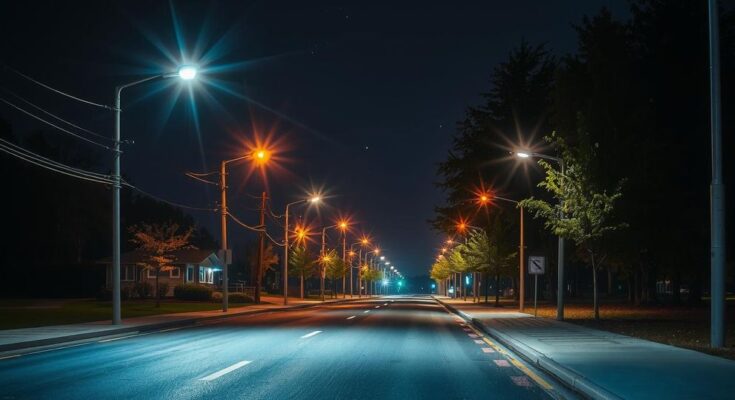South Sudan has enacted a nationwide curfew from 6 p.m. to dawn to prevent violence against Sudanese traders following looting incidents in Juba. The curfew corresponds with broader measures aimed at enhancing safety, compelling businesses to close by 5 p.m. Officials have urged restraint amidst rising tensions linked to the ongoing civil war in Sudan, which has caused significant regional instability.
South Sudanese authorities have established a nationwide overnight curfew aimed at addressing violence against Sudanese traders, which escalated following the looting of businesses in Juba. Commencing from 6 p.m. local time to dawn, the curfew is part of broader security measures to prevent further incidents. Police chief General Abraham Manyuat affirmed the government’s commitment to safeguarding local markets by enforcing an early closing time of 5 p.m. for all businesses.
Reports indicate that the violence resulted from tensions stemming from alleged attacks on South Sudanese nationals by militia groups within Sudan. The presidency’s press secretary, Lily Adhieu Martin Manyiel, urged the public to exercise restraint and not to direct their anger towards Sudanese traders and refugees residing in South Sudan. Those who have business interests in the country are pivotal to its economy.
The ongoing civil conflict in Sudan has triggered a humanitarian crisis characterized by widespread famine and displacement. Since the outbreak of fighting in April 2023, following rival military factions’ clashes in Khartoum, the situation has led to numerous atrocities, including ethnically motivated violence, as reported by various human rights organizations and the United Nations.
The recent imposition of a curfew in South Sudan highlights the increasing tensions arising from the civil strife in the neighboring Sudan. The South Sudanese traders have faced hostility as a result of escalating violence against their communities, connected to events occurring across the border. With historical animosities and current geopolitical dynamics playing a role, it is crucial to analyze the implications of these events on security and civic relations in the region. South Sudan has been dealing with the challenges of a fragile political environment and ongoing violence since gaining independence. The civil war in Sudan has adversely affected trade and the stability of neighboring countries, leading to violent encounters and emotional responses based on real or perceived injustices. This context offers a deeper understanding of the current situation, emphasizing the need for peaceful dialogue and cooperation to ensure regional stability.
In summary, the South Sudan government’s curfew reflects a response to rising tensions and violence aimed at Sudanese traders amid a larger backdrop of civil unrest in Sudan. Authorities are taking decisive steps to protect individuals and maintain order, even as the conflict in Sudan continues to impact neighboring countries. The call for restraint signifies an understanding of the complex humanitarian implications that arise in times of conflict, underscoring the necessity for peace.
Original Source: www.wral.com




